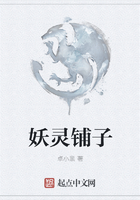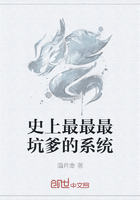It was seven o'clock when the carriage containing the justice drove into the courtyard at Boiscoran,--a vast court, planted with lime-trees, and surrounded by farm buildings. The chateau was wide awake.
Before her house-door, the farmer's wife was cleaning the huge caldron in which she had prepared the morning soup; the maids were going and coming; and at the stable a groom was rubbing down with great energy a thorough-bred horse.
On the front-steps stood Master Anthony, M. de Boiscoran's own man, smoking his cigar in the bright sunlight, and overlooking the farm operations. He was a man of nearly fifty, still very active, who had been bequeathed to his new master by his uncle, together with his possessions. He was a widower now; and his daughter was in the marchioness' service.
As he had been born in the family, and never left it afterwards, he looked upon himself as one of them, and saw no difference between his own interests and those of his master. In fact, he was treated less like a servant than like a friend; and he fancied he knew every thing about M. de Boiscoran's affairs.
When he saw the magistrate and the commonwealth attorney come up to the door, he threw away his cigar, came down quickly, and, bowing deeply, said to them with his most engaging smile,--"Ah, gentlemen! What a pleasant surprise! My master will be delighted."With strangers, Anthony would not have allowed himself such familiarity, for he was very formal; but he had seen M. Daubigeon more than once at the chateau; and he knew the plans that had been discussed between M. Galpin and his master. Hence he was not a little amazed at the embarrassed stiffness of the two gentlemen, and at the tone of voice in which the magistrate asked him,--"Has M. de Boiscoran gotten up yet?"
"Not yet," he replied; "and I have orders not to wake him. He came home late last night, and wanted to make up this morning."Instinctively the magistrate and the attorney looked away, each fearing to meet the other's eyes.
"Ah! M. de Boiscoran came home late last night?" repeated M. Galpin.
"Towards midnight, rather after midnight than before.""And when had he gone out?"
"He left here about eight."
"How was he dressed?"
"As usually. He had light gray trousers, a shooting-jacket of brown velveteen, and a large straw hat.""Did he take his gun?"
"Yes, sir."
"Do you know where he went?"
But for the respect which he felt for his master's friends, Anthony would not have answered these questions, which he thought were extremely impertinent. But this last question seemed to him to go beyond all fair limits. He replied, therefore, in a tone of injured self-respect,--"I am not in the habit of asking my master where he goes when he leaves the house, nor where he has been when he comes back."M. Daubigeon understood perfectly well the honorable feelings which actuated the faithful servant. He said to him with an air of unmistakable kindness,--"Do not imagine, my friend, that I ask you these questions from idle curiosity. Tell me what you know; for your frankness may be more useful to your master than you imagine."Anthony looked with an air of perfect stupefaction, by turns at the magistrate and the commonwealth attorney, at Mechinet, and finally at Ribot, who had taken the lines, and tied Caraby to a tree.















